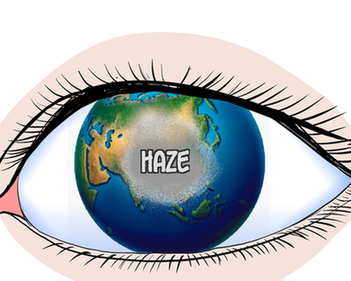Needed: Low cost, big scale of green technology
- By Bjorn Lomborg
 0 Comment(s)
0 Comment(s) Print
Print E-mail Shanghai Daily, September 24, 2013
E-mail Shanghai Daily, September 24, 2013
On September 26, the UN Intergovernmental Panel on Climate Change will present the summary of its most recent assessment report, the fifth in 23 years.
|
|
|
A hazy gaze [By Jiao Haiyang/China.org.cn] |
Although the IPCC is not perfect - it famously predicted that all Himalayan glaciers would be gone in 2035, when the more likely year is 2350 - its many experts generally give us the best information on global warming.
Because of extensive leaks, the report’s contents are mostly known. And, because we have done this four times already, how the report will play out politically is also mostly known. But, because 20 years of efforts to address climate change have not amounted to anything serious, it might be worth exploring a different strategy this time.
The new report’s fundamental conclusion will be that global warming is real and mostly our own doing.
Much will be said and written about the fact that the IPCC is now even more certain (95 percent, up from 90 percent in 2007) that humans have caused more than half of the global rise in temperature since 1950. But this merely confirms what we have known for a long time.
The bigger problem for the IPCC is that global temperature has risen little or not at all in the last 10-20 years. To be clear, this slowdown does not mean that there is no global warming - there is; but it does call into question how much.
To its credit, the IPCC admits that “models do not generally reproduce the observed reduction in the surface warming trend over the last 10-15 years.” This matters, because if the models overshoot for recent decades, the century-long forecasts are open to doubt.
Compared to the actual temperature rise since 1980, the average of 32 top climate models (the so-called CMIP5) overestimates it by 71-159 percent .






